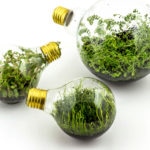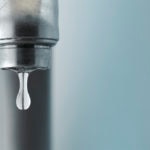Five tips to boost energy efficiency
Practicing energy efficiency is essential for the protection of the environment. A few simple household tricks will help you manage to reduce your energy consumption while at the same time adding to the household pocketbook.

1. Electrical Appliances
The use of energy efficient appliances means less energy consumption and therefore energy savings. Buyers can quickly and easily evaluate the energy consumption of an appliance by checking energy labels in Europe or the EnergyGuide label in the U.S. In Europe, appliances are rated on a scale of A to G, with A –in green– representing the highest level of energy efficiency and G –in red– flagging the least. The U.S. system awards the Energy Star label to the most efficient models. Although the appliance in question might be more expensive than others when making the purchase, in the long term it ends up paying for itself.
2. Heating and air conditioning
Heating can also represent a meaningful source of savings if one adheres to a set of parameters such as keeping temperatures between 19 and 21ºC (66-69ºF) during the day, and 15º to 17ºC (59º-63ºF) at night. Any variation to these settings could lead to an increase of up to 7 percent on the monthly heating bill. It is a good idea to inspect the heating system before winter, from the boiler to the radiators, which will likely need “bleeding” –the process of opening the air vent to allow trapped air to escape. The best thing to do is to give the heating equipment periodic maintenance so that it works properly; otherwise the system will work harder –and use more energy– when the time comes to heat the house.
When trying to stay cool, where the air-conditioning unit is physically located can play a part in how well the system works: it's best to install the AC unit so that it is not directly in the sun. Regular maintenance of the air conditioning unit's filters is important. Monitoring and regulating the temperature to keep it near 22ºC (72ºF) is best practice. Each degree that the system is adjusted downward can represent up to an 8 percent increase in the monthly energy bill.
3. Water
Saving water not only helps to maintain a healthy bank account balance but also helps avoid pollution of lakes, rivers, and oceans. Simple measures such as showering instead of taking a bath can represent three to five times less water consumed. The experts point out that shutting the taps when shaving, brushing your teeth, or soaping up in the shower are habits that can make a considerable contribution.
You can also contribute to a reduction in water consumption by installing smart water devices to control the flow of water in showers and faucets. It’s also best only to use the dishwasher and washing machine when they are ready for a full load.

Showering instead of taking a bath can represent three to five times less water consumed
4. Lighting
Another way to contribute to energy efficiency is to use LEDs to replace conventional incandescent light bulbs. These alternative bulbs can generate an energy savings of up to 80 percent compared to traditional lighting sources. In addition, LEDs have the added benefit that they are made from environmentally friendly materials.
5. Transportation
Transportation accounts for more than 25 percent of CO2, 67 percent of nitrogen oxide, and 87 percent of carbon monoxide (CO) emissions.
When evaluating cars, it is important to bear in mind that although old diesel engines pollute up to four times more than gasoline powered vehicles, current engines operate at similar emissions levels. Currently there is increasing public demand to make hybrid and electric vehicles more common. An electric vehicle is more efficient because it doesn't emit any pollutants locally –where and when it is driven– but fossil fuels may have been burned in the process of generating the electricity that recharges the vehicle.
There are also driving habits that can contribute to energy efficiency: don't drive at excessive speeds or make brusque movements; don't drive with the windows down, keep the air temperature at an average of 21ºC (70ºF), and be sure the tires and engine are properly tuned-up.